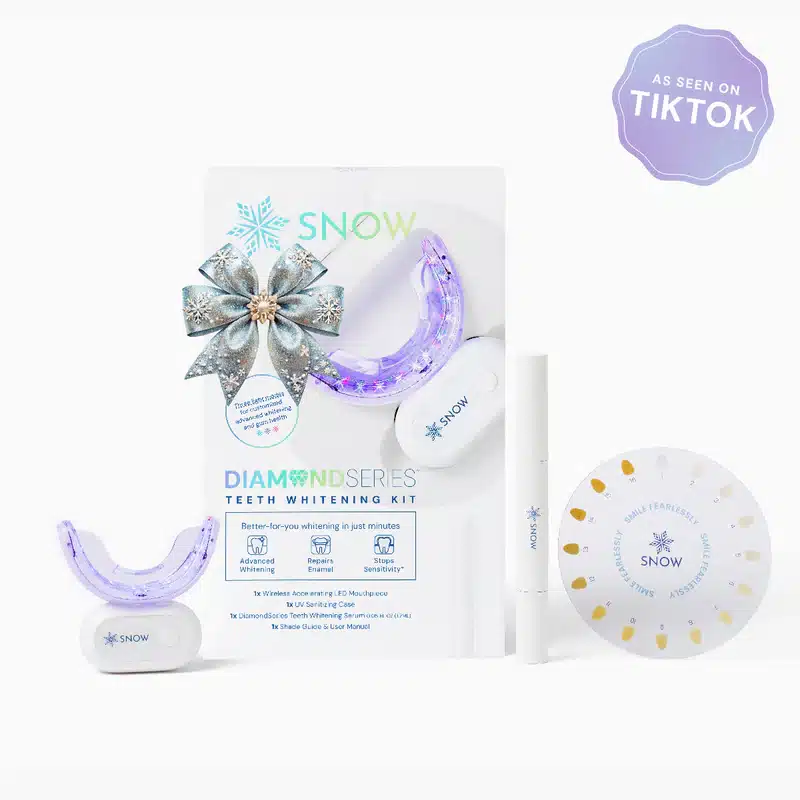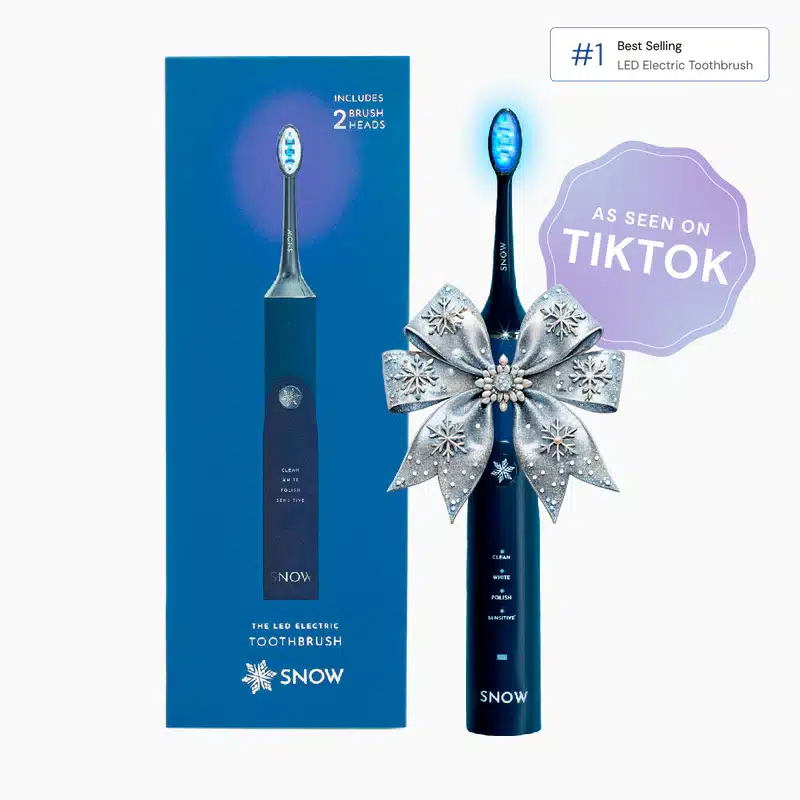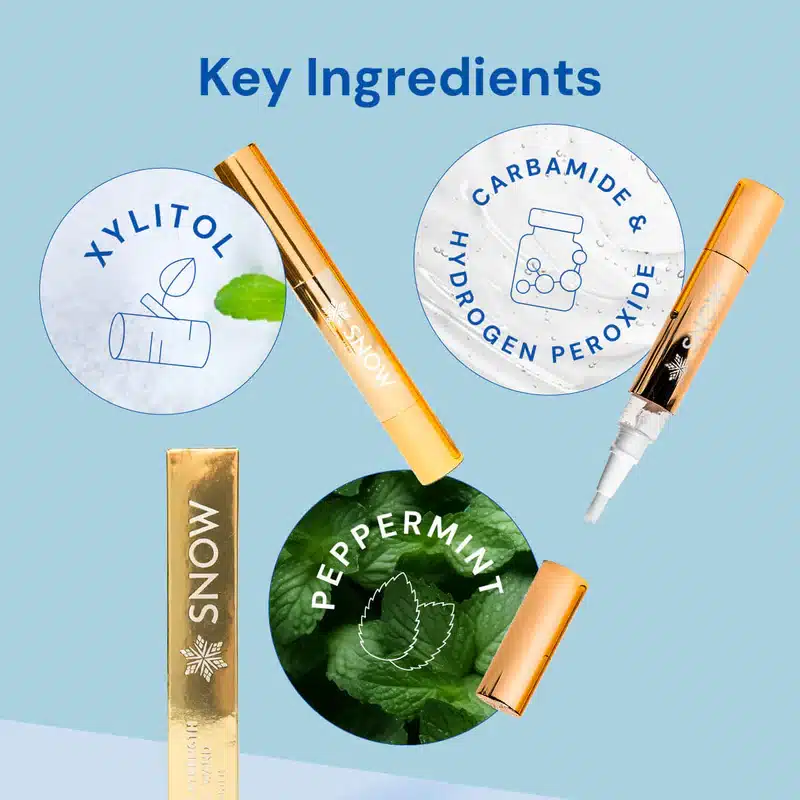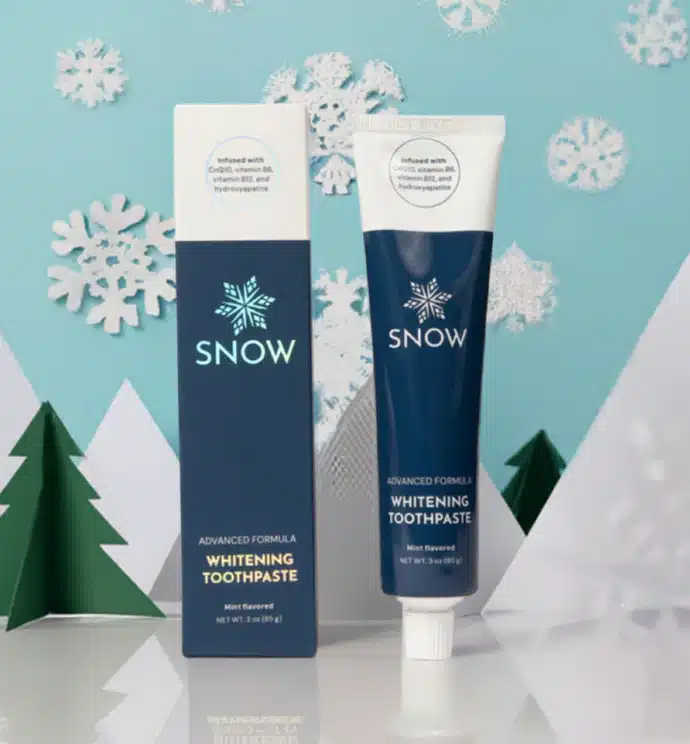When it comes to your teeth, you want to have a bright and shining smile! But if you're thinking about whitening your teeth, one of the major questions you may find yourself asking is “How often should I whiten my teeth?” The answer depends on many factors such as how dark or discolored your teeth currently are and to what degree of brightness do you wish to achieve. Whitening too often or for too long can make your teeth very sensitive. That's why learning when and how often is key for successfully whitening your smile without any unwanted side effects. In this blog post, we'll explore all aspects of teeth whitening so that you can make an informed decision regarding proper use.
Benefits of whitening teeth regularly
Did you know that regularly whitening your teeth can offer several benefits beyond just a brighter, confident smile? Investing in teeth whitening often encourages individuals to pay more attention to their dental hygiene and oral care, which results in a healthier smile and oral cavity. Maintaining a bright and fresh smile can make you feel more confident in both personal and professional settings. So, don't hesitate to give teeth whitening a try and see these benefits for yourself!
Factors to consider before whitening teeth
If you're considering whitening your teeth, there are a few factors to keep in mind. How often you need to bleach your teeth is largely determined by the initial color and the level of brightness you hope to achieve. Be aware that tooth-whitening treatments can cause sensitivity, so at-home whitening may need to be done over a few weeks, rather than every day. In-office teeth whitening can make your teeth even more sensitive, so trying to do this too frequently may not be a great option for you. Make sure to consult a professional before committing to bleaching and discuss any risks or considerations associated with your particular situation.
Different options for whitening teeth
If you're looking for a brighter and whiter smile, teeth whitening can be an effective way to make it happen. Professional in-office teeth whitening is one option, in which your dentist applies a strong whitening gel with a laser light activator that dries your teeth out, which makes them look even whiter. Another possibility is at-home whitening trays, in which custom fitted trays are made from impressions or digital scans of your teeth and filled with a whitening gel to wear while you sleep or for hours at a time. They may take several applications over a few weeks before you see the desired result, but they tend to be a great option for teeth whitening maintenance. Ultimately, finding the right approach for your own needs depends on how dark or stained your teeth were in the first place, and how white you'd like them to be.
True teeth whitening requires whitening gel
True teeth whitening actually requires the use of a whitening gel. Whitening toothpastes and mouthwashes have heavily been marketed to say they whiten your teeth. Whitening toothpastes will remove the surface staining on your teeth, but “whitening mouthwashes” won't do anything to whiten your teeth. Using a whitening toothpaste in addition to whitening gel can give a very good result. So, next time you're thinking about teeth whitening, remember to explore your options and consider giving whitening gel a try.
How often should you whiten your teeth?
How often you decide to whiten your teeth depends on how white you want to get them and how dark they were originally. You should also take into consideration the frequency of use and the amount of time per session, as making your teeth too white or whitening them for too long can make them very sensitive. Ultimately, it’s important to strike a balance: determine the level of white that you desire then use the whitening gel enough to see how long you can wear them for and how frequently you can whiten without having sensitivity. When done correctly, it is possible to keep teeth comfortable while ultimately seeing your desired results in a short time.
Common food and drinks that will stain your teeth more
Some of our favorite food and drinks can leave a lasting impact on our pearly whites. Yes, we all love our morning coffee and evening glass of wine, but unfortunately, these beverages are notorious for staining teeth. The fact is, striking a balance between enjoying these delish delights and maintaining a bright smile can be challenging, but being aware of their effects helps us make better choices for our oral health. Other common food/drinks that stain your teeth –
-> Soda -> Balsamic Vinegar
-> Juice -> Soy Sauce
-> Curry (tumeric) -> Grapes
-> Berries -> Starchy Foods
-> Tomato Juice -> Tea
It's important to have a routine teeth whitening regimen to maintain healthy looking teeth. Despite the obvious aesthetic benefits, having clean and white teeth can be a sign of good oral health. You should take into consideration factors like existing shade of your teeth, sensitivity level, and desired outcome. There are various options that you can try such as professional whitening treatments at a dentist office or the use of over-the-counter whitening products. In regards to how regularly you should whiten your teeth – it depends on how white you want them to get or stay and how dark your teeth start as in the first place.
Read more about teeth whitening here.

Dr. Thomas is a general dentist that loves sharing information about all aspects of dentistry, but is passionate about digital and implant dentistry. Dr. Thomas received his DMD degree from Tufts University School of Dental Medicine and continues to find helpful ways to inform and educate people about dental procedures and products.
Are you looking for a second opinion? Dr. Thomas is the CEO of Opinion Two Nonprofit Organization. Opinion Two is available online or on mobile app and it allows patients to receive dental second opinions with top US-licensed dentists. All proceeds are used to benefit future generations of dentists through scholarships and benefits to pre-dental programs.
Website Education Committee — Academy of Osseointegration (AO)
Dr. Thomas contributes to AO’s website education strategy, applying advanced web development and SEO expertise to elevate online continuing education.
- Creates and curates online CE content and resources.
- Supports SEO and web communications initiatives for AO.
- Advises on UX and performance metrics to improve learning impact.








